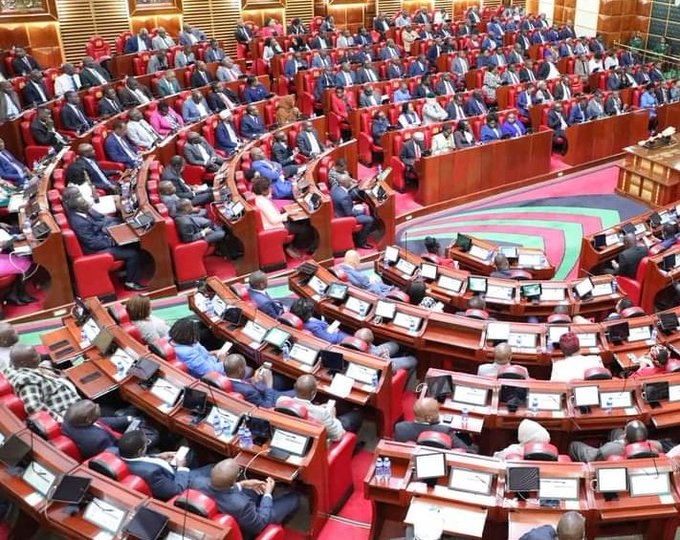Four suspects were on Saturday arrested while trying to sell ten pieces of elephant tusks weighing 28 kilograms in Busia Town.
The four were riding on a bodaboda when they were intercepted by police and Kenya Wildlife Service officials who had been tipped off.
Upon searching two gunny bags they were ferrying with ten pieces of elephant tusks weighing 28 kilogrames with an estimated street value of Sh2.8 million were recovered, police said.
The two men and two women said they were taking the same to a potential buyer when they were intercepted on July 29.
The buyer happened to be an undercover detective who had been tipped off about the deal.
Police say they are yet to know the source of the tusks. The suspects were Monday, July 31 expected in court as police investigate the source of the tusks.
Elephant tusks fetch a fortune in the black market as a surge in demand for ivory in the East continues to fuel the illicit trade in elephant tusks, especially from Africa.
Officials say despite a ban on the international trade in ivory, African elephants are still being poached in large numbers.
As part of efforts to stop the menace, Kenya has started using high-tech surveillance equipment, including drones, to track poachers and keep tabs on elephants and rhinos.
KWS and stakeholders have put in place mechanisms to eradicate all forms of wildlife crime, particularly poaching.
These mechanisms include enhanced community education, interagency collaboration, and intensive intelligence-led operations, among others.
These efforts led to zero rhino poaching in Kenya in 2020-the first time in about two decades.
At least 20,000 elephants are killed annually in Africa for their ivory. This translates to 55 elephants killed daily or one elephant killed every 26 minutes with a population of 35,000 elephants. On April 30, 2016, Kenya set ablaze 105 tonnes of elephant ivory and 1.35 tonnes of rhino horn.
Former President Uhuru Kenyatta led world leaders and conservationists in burning the remains of 6,500 elephants and 450 rhinos killed for their tusks and horn.
Parliament has also passed strict anti-poaching laws and the government has beefed up security at parks to stop poaching, which threatens the vital tourism industry.
Regionally, Kenya has also emerged as a major transit route for ivory destined for Asian markets from eastern and central Africa.
The illegal ivory trade is mostly fuelled by demand in Asia and the Middle East, where elephant tusks and rhino horns are used to make ornaments and traditional medicines.














